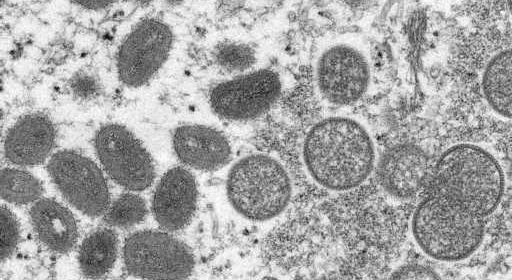Colorado to receive more doses of monkeypox vaccine, but supply is still limited

Colorado is one of nine states that will get additional doses of the monkeypox vaccine to try to stem transmission within the highest-risk populations, as federal officials acknowledged that the virus is spreading more widely than case counts would suggest.
Brian Spencer, spokesman for the Colorado Department of Public Health and Environment, said the state hasn’t heard exactly how many doses of the Jynneos vaccine it may receive in the near future, but the supply is expected to remain “very limited” for now.
There have been six confirmed cases of monkeypox in May and June in Colorado, according to state health officials, and 24 people in the state have received post-exposure vaccinations.
It’s possible Colorado could start giving the vaccine to high-risk people at some point, but for now, the health department is going to limit it to people with a known exposure, Spencer said. The Jynneos monkeypox vaccine requires two shots and can be given before a person encounters the virus, or in the days after exposure.
“We are planning for multiple potential scenarios depending on allocation,” he said.
The U.S. Department of Health and Human Services is recommending that states vaccinate people who know they were exposed, as well as gay and bisexual men who had multiple partners in an area where monkeypox is spreading.
Most of the people infected in the current monkeypox outbreak are men who have sex with men. The virus is primarily spreading through skin-to-skin contact and touching items that rubbed a person’s lesions (such as towels or bedsheets). It can live in people’s respiratory droplets, but people who had a short interaction with an infected person aren’t believed to be at risk.
Most people who get monkeypox recover without specific treatment, though survivors have reported the lesions can be quite painful. People with compromised immune systems or who are pregnant are at a higher risk of severe illness, though. No Americans have died in the current outbreak.
The other recipients in the upcoming round of distribution will be Hawaii, Massachusetts, Utah, Illinois, New York, Rhode Island, California, Florida and the District of Columbia, according to The Washington Post. The 56,000 shots will be distributed based on states’ populations of at-risk people who can’t receive the other vaccine, which is called ACAM2000.
The country has about 100 million doses of ACAM2000, an older vaccine that was developed for smallpox, but also provides some protection against monkeypox. That version contains a live, but weakened, version of a related virus, so it’s not appropriate for people who have compromised immune systems or heart problems, or who are pregnant. People who live with a high-risk person also shouldn’t get the shot, because of the risk they could spread the virus.
More Jynneos shots will be distributed later this summer, with 1.6 million doses available by the end of the year.
The U.S. health department also announced that the Centers for Disease Control and Prevention started shipping testing supplies to commercial labs last week, so that not all tests would have to go through a public health laboratory.
Some Biden administration officials have raised concerns that hard-to-access tests mean that the country doesn’t have a clear picture of where the monkeypox virus may be. About 30% of monkeypox tests have come back positive, and doctors have complained about the difficulty of getting state or local labs to swab their patients, particularly if their symptoms look a little different from what’s expected.
Some cities, including San Francisco, have found small amounts of monkeypox in their wastewater, suggesting there are more cases than health officials know about. Colorado isn’t using wastewater surveillance to look for monkeypox, but is considering it, Spencer said.
The current version of the monkeypox virus is related to a strain found in Nigeria in 2017. It has more mutations than a virus in the orthopox family would normally pick up in five years, researchers said, but it’s not clear if any of those changes are important. Some scientists think that means monkeypox has quietly been spreading at low levels since 2018, but that isn’t certain.
Source: Read Full Article